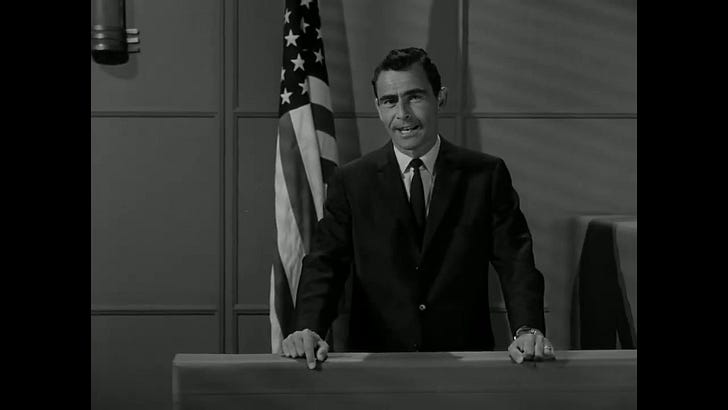A Georgia appeals court has disqualified Fulton County District Attorney Fani Willis from overseeing the criminal election interference prosecution of Donald Trump and his personal la costra nostra. The indictment remains, but Trump’s legal team has declared the case officially burnt toast. And they’re probably right.
Trump won Georgia decisively in 2024 after trying to steal the state’s electoral votes in 2020. Worse, his running mate visited a Georgia doughnut shop and ordered cinnamon rolls instead of honey buns. It’s unclear if an actual trial and conviction would’ve changed the election’s outcome, but it would’ve been nice to see justice almost done.
After Trump’s Georgia indictment dropped last year, I discussed the fallout with my friend and law-talker Jamie Lynn Curtis.
Transcribed excerpts from our conversation:
SER: Trump keeps saying that he won by hundreds of thousands of votes in Georgia, right? Does that make any difference as to his state of mind or anything? Or is it just like he’s just delusional and can’t accept defeat?
JAMIE: I haven't looked deeply into these charges and which ones would require a specific mens rea on his part. I think some do require intentionality. I don’t think that all of them do. People on his campaign and some of the lawyers, even some of the lawyers who have been indicted told him, “This is not true.” For example, one of the things in the Georgia indictment was about Trump signing one of the legal filings as true when it was just blatantly false.
And [John] Eastman had actually said, you shouldn’t sign this and Trump did anyway, and Eastman filed it anyway. So I think that even where intentionality is going to be a part of it, it's going to be hard to refute all of the facts that we know were available to him just from these indictments.
And that point when everyone — aside from a couple of people who Trump himself in private called crackpots, like Sidney Powell — when literally everyone else is saying this did not happen, at what point do we just have to say, yeah, he knew because to anyone else paying attention and looking at the evidence, it was pretty clear.
SER: Because Trump can’t accept that he lost, that the people rejected him, so he has to imagine that he won, it does lead to these dramatic, almost absurd kind of conspiracies that involves having to claim that the other side, essentially stole an election, which leads to people like [Georgia election workers] Ruby Freeman and Shaye Moss being harassed and targeted because the only way it works is that someone committed this larger crime. That sets them up for harassment and death threats, which is obviously unforgivable.
They should, you know, rot in prison just for what they did to those women, but there was even more than just them, like elected officials in Michigan
JAMIE: I really thought that the delay after January 6, before the House actually impeached [was a terrible mistake.] We’re going to wait until the House comes back into session to impeach him? I’m sorry, no, you call everyone back like the next fucking day and you impeach the mother. Sorry, you impeach the person.
I did think that that was a missed opportunity because in the first few days after January 6, that was the moment that Democrats had and that people who care about democracy had. Because overall, apart from the few really, really hardline MAGA people, even people who voted for Trump for a couple days there, a lot of them were pretty horrified by January 6 and what had happened. It was an attack on our country, and a lot of people saw it that way. The longer time that elapsed and the more that people were able to just listen to the Ted Cruzes and Josh Hawleys and Donald Trump, it started to be minimized and just talked about as this thing that happened.
SER: The Georgia case was far more perilous for Trump. His obvious goal from the start would have been to win election in 2024, pardon himself … He could just end, if he hasn’t been convicted already, just end all the investigations at the federal level against him. But here, these are state charges. One, he has no pardon power, right?
JAMIE: Per the Georgia Constitution, the governor does not have pardon power either. So even if [Brian] Kemp were inclined to issue a pardon, he can’t. In Georgia, those decisions are made by a bipartisan pardon commission. And I believe that in addition to that, it has to be a two-thirds vote in order for someone to be approved for a pardon. And so that’s going to be exceedingly difficult to get in the event that he is convicted.
I mean, I do appreciate the broadness of their RICO statute. Their racketeering law is actually a little bit broader than the federal statute. But actually, I think that all of these claims were pretty similar to claims that could be brought in federal court. It just kind of makes the Georgia that much stronger.













